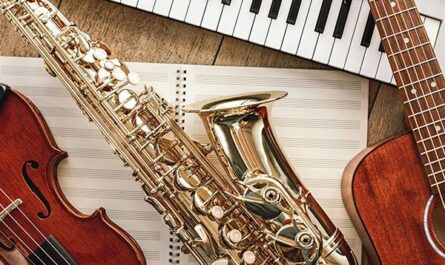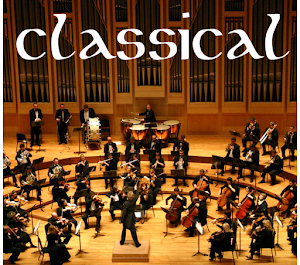Johann Sebastian Bach was a German composer and musician born in Eisenach in 1685. He is widely regarded as one of the greatest composers of all time, and his music also continues to be celebrated and studied to this day. Bach’s life was characterized by his devotion to music and his unwavering commitment to his craft. He left behind a legacy of unparalleled musical genius, and his works have had a profound impact on the world of classical music.
Bach Early Life and Education
Bach was born into a musical family. His father, Johann Ambrosius Bach, was also a well-respected musician and court trumpeter. Bach’s family was deeply religious, and he was raised in the Lutheran faith. Bach began his musical education at a young age. His father taught him the fundamentals of violin and also keyboard playing. Bach’s talent was evident from a young age, and he quickly developed a reputation as a prodigy.
Bach Musical Career and Achievements
Bach’s career in music began in earnest when he was appointed as the court musician in Weimar in 1703. He quickly rose through the ranks, and by 1717 he was hence appointed as the court music director in Cöthen. It was during this period that Bach wrote some of his most famous works. This includes the Brandenburg Concertos and the Goldberg Variations.
Bach’s later career was marked by a series of appointments as a church musician. He spent much of his time composing religious music. Some of his most famous works from this period include the St. Matthew Passion and the Mass in B Minor. Bach’s music was widely celebrated during his lifetime, and he was recognized as a master of his craft.
Why Bach is Considered One of the Greatest Composers of All Time
Bach’s music is celebrated for its complexity, depth, and beauty. He was a master of counterpoint, harmony, and melody. His works are also characterized by their intricate interweaving of multiple musical lines. Bach’s music is also notable for its emotional depth. His ability to evoke powerful emotions through his compositions is unparalleled.
Bach’s legacy is also due in part to the sheer volume of his output. He composed a staggering amount of music during his lifetime, including thousands of works for keyboard, organ, choir, and orchestra. His music has stood the test of time and continues to be celebrated and studied by musicians and music lovers around the world.
Bach Musical Style
Overview of Bach Musical Style
Bach’s musical style is characterized by its complexity, depth, and beauty. His works are also marked by their intricate interweaving of multiple musical lines, and his use of counterpoint and harmony is unparalleled. Bach’s music is also notable for its emotional depth. His ability to evoke powerful emotions through his compositions is one of his greatest strengths.
Use of Counterpoint, Harmony, and Melody
Bach’s use of counterpoint, harmony, and melody is a hallmark of his musical style. Counterpoint refers to the technique of combining multiple musical lines or melodies to create a rich and complex texture. Bach was a master of this technique, and his works are also characterized by their intricate interweaving of multiple musical lines. Harmony refers to the combination of different musical notes played simultaneously. Bach’s use of harmony is notable for its complexity and beauty. Melody refers to the sequence of musical notes played one after the other. Bach’s melodies are noted for their beauty and emotional depth.
Bash Influence on Later Composers
Bach’s influence on later composers cannot be overstated. His music has had a profound impact on the world of classical music. His works continue to be studied and also celebrated by musicians and music lovers around the world. Many composers, including Mozart, Beethoven, and Brahms, were deeply influenced by Bach’s music. They also incorporated elements of his style into their own works.
Why His Music Has Stood the Test of Time
Bach’s music has stood the test of time due to its complexity, depth, and emotional power. His works are marked by their intricate interweaving of multiple musical lines, and his use of counterpoint and harmony is unparalleled. Bach’s music is also notable for its emotional depth. His ability to evoke powerful emotions through his compositions is one of his greatest strengths. Bach’s legacy is also due in part to the sheer volume of his output. He composed a staggering amount of music during his lifetime, including thousands of works for keyboard, organ, choir, and orchestra.
Bach Major Works

Overview of Bach Major Works
Bach composed a staggering amount of music during his lifetime, including thousands of works for keyboard, organ, choir, and orchestra. His major works are celebrated for their complexity, depth, and emotional power. They also continue to be studied and celebrated by musicians and music lovers around the world.
Brandenburg Concertos
The Brandenburg Concertos are a collection of six instrumental works composed by Bach in 1721. They are therefore widely regarded as some of the finest examples of Baroque instrumental music. They also continue to be celebrated and studied by musicians and music lovers around the world.
History and Significance of the Work
The Brandenburg Concertos were written during Bach’s time as the court music director in Cöthen. They were composed as a gift for the Margrave of Brandenburg. They also represent some of the finest examples of Baroque instrumental music.
Themes and Motifs
The Brandenburg Concertos are notable for their complex interweaving of multiple musical lines, and their use of counterpoint and harmony is unparalleled. They are also notable for their emotional depth, and their ability to evoke powerful emotions through their compositions is one of their greatest strengths.
Recommended Recordings or Performances
Some of the most highly recommended recordings of the Brandenburg Concertos include those by the English Baroque Soloists, the Academy of Ancient Music, and also the Freiburg Baroque Orchestra.
Goldberg Variations
The Goldberg Variations are a collection of keyboard works composed by Bach in 1741. They are therefore widely regarded as one of the greatest examples of Baroque keyboard music. They also continue to be studied and celebrated by musicians and music lovers around the world.
History and Significance of Bach Work
The Goldberg Variations were composed for the harpsichordist Johann Gottlieb Goldberg. They also represent some of the finest examples of Baroque keyboard music. They are also notable for their complexity and beauty, and their emotional depth is one of their greatest strengths.
Themes and Motifs
The Goldberg Variations are notable for their intricate interweaving of multiple musical lines. Their use of counterpoint and harmony is also unparalleled. They are also notable for their emotional depth, and their ability to evoke powerful emotions through their compositions is one of their greatest strengths.
Recommended Recordings or Performances
Some of the most highly recommended recordings of the Goldberg Variations include those by Glenn Gould, András Schiff, and Murray Perahia.
Mass in B Minor
The Mass in B Minor is a choral work composed by Bach in 1749. It is widely regarded as one of the greatest examples of Baroque choral music, and it continues to be studied and celebrated by musicians and music lovers around the world.
History and Significance of the Work
The Mass in B Minor was composed near the end of Bach’s life, and it represents one of his greatest achievements as a composer. It is notable for its complexity, beauty, and emotional power, and it continues to be celebrated as one of the greatest works of classical music.
Themes and Motifs
The Mass in B Minor is notable for its intricate interweaving of multiple musical lines, and its use of counterpoint and harmony is unparalleled. It is also notable for its emotional depth, and its ability to evoke powerful emotions through its compositions is one of its greatest strengths.

Recommended Recordings or Performances
Some of the most highly recommended recordings of the Mass in B Minor include those by the Monteverdi Choir, the English Baroque Soloists, and John Eliot Gardiner.
Bach Other Major Works
Bach composed a staggering amount of music during his lifetime, including thousands of works for keyboard, organ, choir, and orchestra. Some of his other major works include the St. Matthew Passion, the Well-Tempered Clavier, and the Christmas Oratorio.
History and Significance of the Work
Bach’s other major works are celebrated for their complexity, depth, and emotional power, and they continue to be studied and celebrated by musicians and music lovers around the world.
Themes and Motifs
Bach’s other major works are notable for their intricate interweaving of multiple musical lines, and their use of counterpoint and harmony is unparalleled. They are also notable for their emotional depth, and their ability to evoke powerful emotions through their compositions is one of their greatest strengths.
Recommended Recordings or Performances
Some of the most highly recommended recordings of Bach’s other major works include those by the Monteverdi Choir, the English Baroque Soloists, and also John Eliot Gardiner.
Bach Legacy
How Bach Music Has Influenced Other Composers and Musicians Over the Centuries
Bach’s music has had a profound impact on the world of classical music, and his works continue to be studied and celebrated by musicians and music lovers around the world. Many composers, including Mozart, Beethoven, and Brahms, were deeply influenced by Bach’s music and incorporated elements of his style into their own works.
Bach Influence on Modern Music
Bach’s influence on modern music is significant. His works continue to be studied and celebrated by musicians and music lovers around the world. Many contemporary musicians and composers have been inspired by Bach’s music. His influence can also be heard in a wide variety of musical genres.
Bach Impact on the Development of Music Theory and Practice
Bach’s impact on the development of music theory and practice cannot be overstated. His works represent some of the finest examples of Baroque music. They also continue to be studied and celebrated by musicians and music lovers around the world. Bach’s music has had a profound impact on the world of classical music, and his legacy continues to be felt to this day.
Listening to Bach

Tips and Guidance for Listening to Bach Music
Listening to Bach’s music can be a rewarding and enriching experience, but it can also be challenging for those who are new to his music. Some tips and guidance for listening to Bach’s music include taking the time to appreciate the complexity and beauty of his compositions, listening for the intricate interweaving of multiple musical lines, and paying attention to the emotional depth of his works.
What to Listen for and How to Appreciate Bach Unique Style
When listening to Bach’s music, it is important to listen for the intricate interweaving of multiple musical lines, the use of counterpoint and harmony, and the emotional depth of his works. Appreciating Bach’s unique style requires patience and an open mind, but it can be a rewarding and enriching experience for those who take the time to explore his music.
Recommended Recordings or Performances of Bach Works for Those Who Are New to His Music
For those who are new to Bach’s music, there are many highly recommended recordings and performances available. Some of the most highly recommended recordings and performances include those by the Monteverdi Choir, the English Baroque Soloists, and John Eliot Gardiner.
Case Study: The Profound Impact of Bach Music
In the small town of Leipzig, Germany, lived a young girl named Anna. Growing up in a musically inclined family, Anna was exposed to various composers from an early age. However, it wasn’t until she heard Johann Sebastian Bach’s music that her passion for classical music truly ignited.
One day, Anna stumbled upon a recording of Bach’s Brandenburg Concerto No. 3. As the music filled her room, she was captivated by the intricate melodies and harmonies that seemed to dance effortlessly with one another. The sheer brilliance and complexity of Bach’s compositions left her in awe.
Inspired by Bach’s music, Anna decided to pursue a career in music. She dedicated countless hours to studying and practicing the piano, striving to understand the depth and beauty that Bach had created centuries ago. As she immersed herself in Bach’s works, Anna discovered a profound sense of connection with the composer.
Journey
Anna’s journey eventually led her to perform Bach’s Goldberg Variations in a local concert hall. The audience was spellbound as she delicately weaved through the intricate variations, each one revealing a different facet of Bach’s genius. The performance was met with resounding applause, and Anna knew that she had done justice to the music that had touched her soul.
Through her experience with Bach’s music, Anna understood the lasting impact that his compositions had on both musicians and audiences alike. She witnessed firsthand how Bach’s music transcended time and cultural boundaries, resonating with people from all walks of life.
As Anna’s own musical career flourished, she also continued to delve into Bach’s vast repertoire, finding new inspiration with each piece she encountered. She recognized that Bach’s musical style, with its meticulous attention to detail and unwavering craftsmanship, had set a standard that influenced countless composers and musicians throughout history.
Anna’s story is just one of many that showcases the profound impact of Bach’s music. His compositions continue to inspire and move people today, reminding us of the timeless beauty and power of classical music. Whether experienced in a concert hall or enjoyed through a recording, the transformative nature of Bach’s music is undeniable. It is a testament to his genius and the enduring legacy he has left behind.
Conclusion

Summary of the Main Points of the Article
Johann Sebastian Bach was a German composer and musician. He is widely regarded as one of the greatest composers of all time. His music is celebrated for its complexity, depth, and emotional power. His legacy also continues to be felt to this day. Bach’s major works are celebrated for their complexity, beauty, and emotional power. They also continue to be studied and celebrated by musicians and music lovers around the world.
Reiteration of the Importance of Bach’s Music in the History of Classical Music
Bach’s music has had a profound impact on the world of classical music. Therefore, his legacy continues to be felt to this day. His works are celebrated for their complexity, depth, and emotional power. They also continue to inspire and influence musicians and music lovers around the world.
Encouragement to Explore More of Bach’s Works and to Continue to Appreciate His Genius
Exploring Bach’s works can be a rewarding and enriching experience. It is also important to appreciate his genius and the impact he has had on the world of classical music. By taking the time to listen to his music and explore his works, we can gain a deeper appreciation for his unique style and the beauty of his compositions.
Q & A
Who was Johann Sebastian Bach?
Johann Sebastian Bach was a famous composer and musician from the Baroque period.
What are some famous compositions by Bach?
Some famous compositions by Bach include the Brandenburg Concertos and the Well-Tempered Clavier.
How did Bach contribute to music?
Bach’s contributions to music include his mastery of counterpoint and his development of the fugue.
What makes Bach’s music unique?
Bach’s music is known for its complexity, intricate harmonies, and expressive melodies.
How can I appreciate Bach’s music if I’m not familiar with classical music?
Start by listening to some of his most well-known pieces and let the music speak to you.
Isn’t Bach’s music too old-fashioned for modern listeners?
Bach’s music continues to be cherished and enjoyed by people of all generations, proving its timeless appeal.




